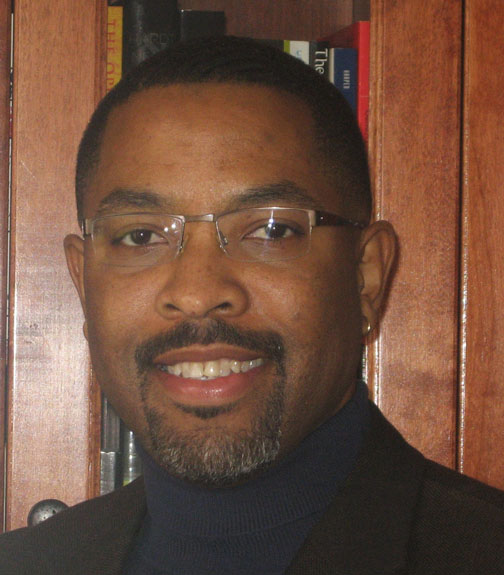
It was four decades in the making, but in the fall of 2011, the Department of Africana Studies opened its doors to the inaugural Ph.D. program class. When the Africana studies program began at Brown in the 1968-69 academic year, department chair Charles Nichols envisioned that it would eventually have a graduate component. When the program became a department in 2001, the idea, spearheaded by chairs Lewis R. Gordon and Anthony Bogues, began to take shape. It was approved in 2009 under the direction of former chair Tricia Rose.
As a result of that persistent communal effort, Brown has become one of only four Ivies and 11 universities nationwide to offer this course of study. Those institutions will come together April 12-14, 2012, at Northwestern University for a conference highlighting their black studies doctoral programs. Department Chair and associate professor of Africana studies Corey D.B. Walker will attend the conference. Here he talks about the growing interest in Africana studies nationwide and what the program means for Brown.
How will this new Ph.D. program build on the undergraduate program that was already in place?
The graduate program builds on the unique strengths of the Department of Africana Studies. Our department has three areas of focus — history, politics and theory; literary and expressive cultures; and gender studies and feminist thought — which makes us unique in the discipline and across the nation. We have always taken the intellectual work and traditions of Africa and the African diaspora as central to our work and we have a number of scholars who are able to train students in unique ways of building on that knowledge and expanding the scholarly repertoire of interdisciplinary scholarship as well as new ways of understanding human existence in the world.
What are some academic interests shared by the students who enter this program?
Generally the students we attract are students who are very much grounded in the discipline of Africana studies. They understand its intellectual traditions and they have a truly global perspective. They recognize that Africana studies is one of the most fertile intellectual grounds for developing new and wide-ranging interdisciplinary scholarship, and they are critically conversant with other disciplines, like history or English or philosophy. They understand the need to engage in wide-ranging conversations with scholars across the University. Our graduate students are exemplary in bringing to the University a new vision of graduate education that is global, that is transdisciplinary, and that recognizes the unique and comprehensive depth and breadth of Africa and African diasporic peoples within the conversation of cultures.
This is the eleventh program in the nation and fourth in the Ivy League. Do you see more universities adding similar programs?
We do see more schools planning to gear up for the Ph.D. There are other other Ivies that are in planning their Ph.D. programs and have announced their planning. The reason I think this has come about in this particular moment is that you’re seeing the maturity of a discipline. There’s a necessity for generating the requisite theories and methods around the discipline and to create the next generation of scholars who will extend the scholarship in ways we can’t even imagine just yet. With the University moving into a much more intensive and deliberate interdisciplinary scholarly phase, bringing together the arts, the sciences, the humanities and social sciences, Africana studies is one of the unique places where those interests intersect in some very dynamic ways.
Will any new faculty hires come out of this new program?
We just hired Matthew Guterl, who is the Rudy Professor of American Studies and History at Indiana University. We welcome Matthew back to Brown, where he was a postdoctoral fellow, on June 1, 2012. We do plan for a number of strategic hires in addition to Matthew to continue the growth of the department and of the faculty to support not only the graduate program, but the intellectual work of Africana studies.
What statement is the University making about the importance of Africana studies in supporting the creation of this new program?
With the Ph.D. in Africana studies, Brown has given the institutional imprimatur that Africana studies is central to a liberal arts education. It is central to a globalized education and it is central to creating an informed citizenry that has to operate in a truly global world. By supporting the Ph.D. program, Brown is reaffirming its fundamental belief that Africana studies is a necessary disciplinary formation for a university in the modern world.
